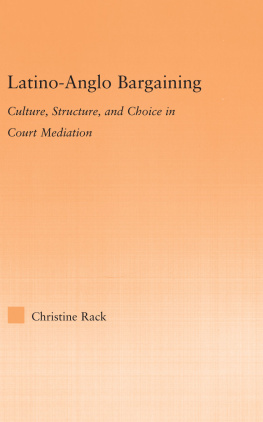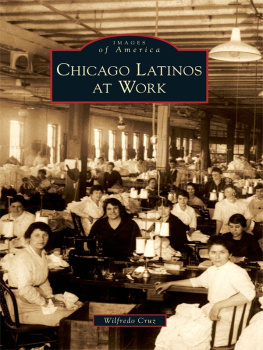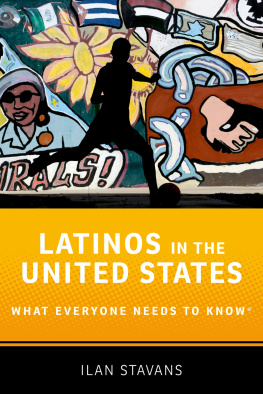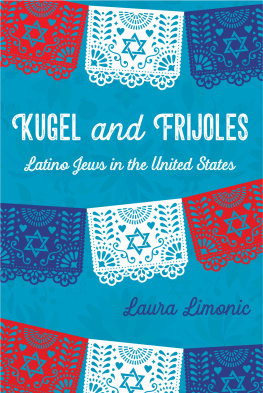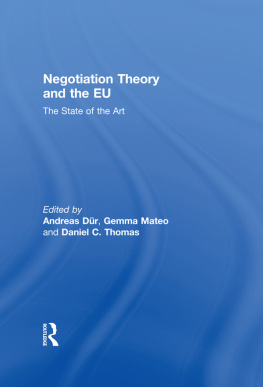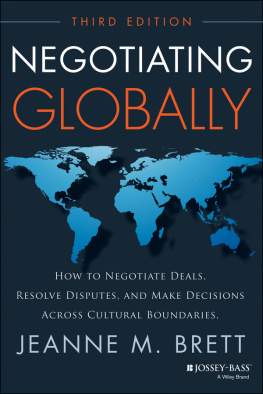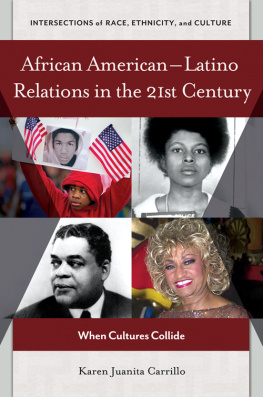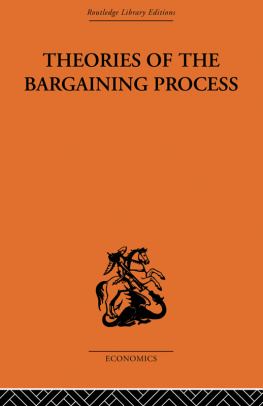LATINO COMMUNITIES
EMERGING VOICES: POLITICAL, SOCIAL, CULTURAL, AND LEGAL ISSUES
Edited by
Antoinette Sedillo Lopez
University of New Mexico
A ROUTLEDGE SERIES
LATINO COMMUNITIES
EMERGING VOICES: POLITICAL, SOCIAL, CULTURAL, AND LEGAL ISSUES
ANTOINETTE SEDILLO LOPEZ, General Editor
LATINOS AND LOCAL REPRESENTATION
Changing Realities, Emerging Theories
Florence Adams
PUERTO RICAN NEWSPAPER COVERAGE OF THE PUERTO RICAN INDEPENDENCE PARTY
A Content Analysis of Three Elections
Maria Cristina Santana
COLEGIO CESAR CHAVEZ, 19731983
A Chicano Struggle for Educational Self-Determination
Carlos S. Maldonado
LATINOS IN ETHNIC ENCLAVES
Immigrant Workers and the Competition for Jobs
Stephanie Bohon
TELLING OUR STORIES
The Lives of Midwestern Latinas
Theresa Barron McKeagney
DOMINICANS IN NEW YORK CITY
Power From the Margins
Milagros Ricourt
LATINO NATIONAL POLITIAL COALITIONS
Struggles and Challenges
David Rodriguez
CREATING TROPICAL YANKEES
Social Science Textbooks and U.S. Ideological Control in Puerto Rico, 18981908
Jos-Manuel Navarro
BROWN EYES ON THE WEB
Unique Perspectives of an Alternative U.S. Latino Online Newspaper
Maggie Rivas-Rodriguez
PREGONES THEATRE
A Theatre for Social Change in the South Bronx
Eva C. Vsquez
THE QUEST FOR TEJANO IDENTITY IN SAN ANTONIO, TEXAS, 19132000
Richard A. Buitron, Jr.
CARIBBEAN SPANISH IN THE METROPOLIS
Spanish Language among Cubans, Dominicans, and Puerto Ricans in the New York City Area
Edwin M. Lamboy
SKIN COLOR AND IDENTITY FORMATION
Perceptions of Opportunity and Academic Orientation among Mexican and Puerto Rican Youth
Edward Fergus
INVITING LATINO VOTERS
Party Messages and Latino Party Identification
Stacey L. Connaughton
LEAVING LATINOS OUT OF HISTORY
Teaching U.S. History in Texas
Julio Noboa
GAY HEGEMONY/LATINO HOMOSEXUALITIES
Manolo Guzmn
LATINO-ANGLO BARGAINING
Culture, Structure, and Choice in Court Mediation
Christine Rack
LATINO-ANGLO BARGAINING
Culture, Structure, and Choice in Court Mediation
Christine Rack
Published in 2006 by
Routledge
Taylor & Francis Group
270 Madison Avenue
New York, NY 10016
Published in Great Britain by
Routledge
Taylor & Francis Group
2 Park Square
Milton Park, Abingdon
Oxon OX14 4RN
2006 by Taylor & Francis Group, LLC
Routledge is an imprint of Taylor & Francis Group
Printed in the United States of America on acid-free paper
10 9 8 7 6 5 4 3 2 1
International Standard Book Number-10: 0-415-97458-5 (Hardcover)
International Standard Book Number-13: 978-0-415-97458-5 (Hardcover)
Library of Congress Card Number 2005024511
No part of this book may be reprinted, reproduced, transmitted, or utilized in any form by any electronic, mechanical, or other means, now known or hereafter invented, including photocopying, microfilming, and recording, or in any information storage or retrieval system, without written permission from the publishers.
Trademark Notice: Product or corporate names may be trademarks or registered trademarks, and are used only for identification and explanation without intent to infringe.
Library of Congress Cataloging-in-Publication Data
Rack, Christine.
Latino-Anglo bargaining : culture, structure, and choice in court mediation / by Christine Rack.-- 1st ed.
p. cm. -- (Latino communities)
Includes bibliographical references and index.
ISBN 0-415-97458-5
1. Dispute resolution (Law)--United States--Social aspects. 2. Negotiation--United States--Social aspects. 3. Hispanic Americans. 4. WASPs (Persons) I. Title. II. Series.
KF9084.R33 2005
347.73'9--dc22
2005024511
For peacemakers seeking justice
Contents
In Latino-Anglo Bargaining: Culture, Structure, and Choice in Court Mediation, Christine Rack makes some deeply complex and multi-faceted contributions to the studies of Latinos, Latinas, gender, race, ethnicity, and class relations. But more than these interests appear in its pages. A layered narrative effectively interweaves orders of abstraction and condition that are customarily given independent treatment in disparate disciplines.
The analysis of race/gender/class intersection speaks for itself. I would humbly venture the prediction that it will considerably help to soften the canonical assumption in intersection studies that quantitative research is inimical to clarifying the interplay amongst these fundamental vectors of inequity. Reflecting on this dimension of the book, I am reminded of the injunction of the ecological psychologist Roger Barker, endorsed by the sociologist Erving Goffmankeep a watch on the public sites through whose portals random people enter to engage among themselves under certain formally established rules; behold the wondrous patterns of interface behavior that will there crystallize. From this perspective, to measure, as author Rack does, the relative and shifting power associations, based on varying dyadic combinations, is to present on stage the ballet of race, gender, and class effects through the lens of statistical insight.
As for the Latino experience, nuance rules. Considerable research has described the overtly political and cultural forms and creative artistry, the identity variations and contestations, associated with Mexican American, Chicano, and Nuevomexicano action. But do Latinos act according to their own collective sensibility in primal, face to face negotiation with Anglo men and women? Does a Latina exude a style distinctive to her ethgender within an encounter of implied contention over everyday resources? The analysis contained in this work succeeds in identifying such subtle patterns of response and initiation which means that it necessarily uncovers the how Anglos act, by gender, sitting across the table from someone who is different by race and/or sex.
With original findings such as these, Latino-Anglo Bargaining is sure to make its mark and we can all look forward to the enhancements it will bring to several discourses.
Phillip B. Gonzales
Professor and Chair, Department of Sociology
University of New Mexico
Many people and institutions contributed to the MetroCourt Project and my formal and informal education. Gary LaFree was an investigator on the Project fifteen years ago, becoming my advisor in the Sociology doctoral program, the Chair of my dissertation committee. He was a consistent mentor and colleague, through data collection, analysis, and presentation, from the very inception of my work in the MetroCourt Project. I am grateful to take with me his constant question, What are you trying to say? and his emphasis on truthfulness as the final criterion for speech. At the University of New Mexico Sociology Department, Professors Phillip (Felip) Gonzales and Susan Tiano provided crucial intellectual, professional, and personal support and challenge over more than a dozen years. Felip Gonzales, Sociology Chair and New Mexico scholar by reputation and birth, served on my committee and generously remained involved in shaping these ideas, including reading drafts of this book and providing valuable insight and criticism. I was fortunate to know the late Everett Rogers, Communications scholar extraordinaire and member of my dissertation committee, who provided timely and open-hearted encouragement. I am also grateful to the many scholars, classmates, and faculty members who dared to speak their truths so that I could think with them. All of these mentors provided guidance and ideas that influenced the analyses and interpretations in this book. The errors, however, are mine alone.

